Business
Samsung Electro-Mechanics confirms $850 million investment to expand FC-BGA production
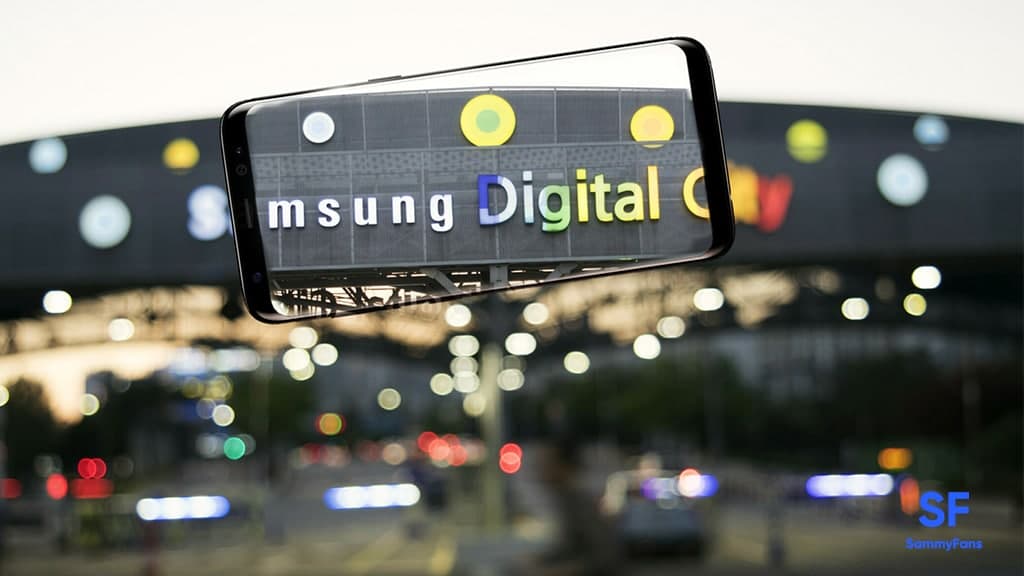
Recently, Samsung Electro-Mechanics has officially announced a new investment in FC-BGA, a high-value-based semiconductor substrate valued at 1.1 trillion won, the main consumer is expected to be Intel. The company is expected to fully retain the leading players in the FC-BGA field such as Ibiden and Shinko Denki of Japan.
According to Korean media TheElec, the company held a board meeting on the 23rd and announced that it would invest $850 million (approximately KRW 1.1 trillion) in production facilities and infrastructure for the production of the Flip Chip (FC) -Ball Grid Array (BGA) in Vietnam. The total investment will be implemented consecutively until 2023.
FC-type semiconductor substrates are roughly divided into FC-BGA and FC-chip-scale package (CSP). FC-BGA is mainly used for server/PC CPU and FC-CSP is mainly used for smartphone AP. Instead of FC-CSP between FC-BGA and FC-BGA, server access is more expensive than PC usage.

Also, Samsung Electro-Mechanics is expected to announce another new investment plan to supply FC-BGAs to overseas global customers. The customer is currently supplying FC-BGA for PC but is expected to supply FC-BGA for the server in the future.
Due to the spread of COVID-19, the demand for FC-BGA for servers and networks increased and supply shortages occurred. Technological advances are also a factor in the shortage of equipment.

The FC method has a shorter distance between the chip and the board than the traditional wire bonding method of connecting the chip and board with wires, so the electrical signal loss is lower and the input/output (I/O) number is formed.
Get notified –
Aside from SammyFans’ official Twitter and Facebook page, you can also join our Telegram channel, follow us on Instagram and subscribe to our YouTube channel to get notified of every latest development in Samsung and One UI ecosystem. Also, you can follow us on Google News for regular updates.
Business
Samsung leads Q3 smartphone market, Huawei’s entry haunts Apple
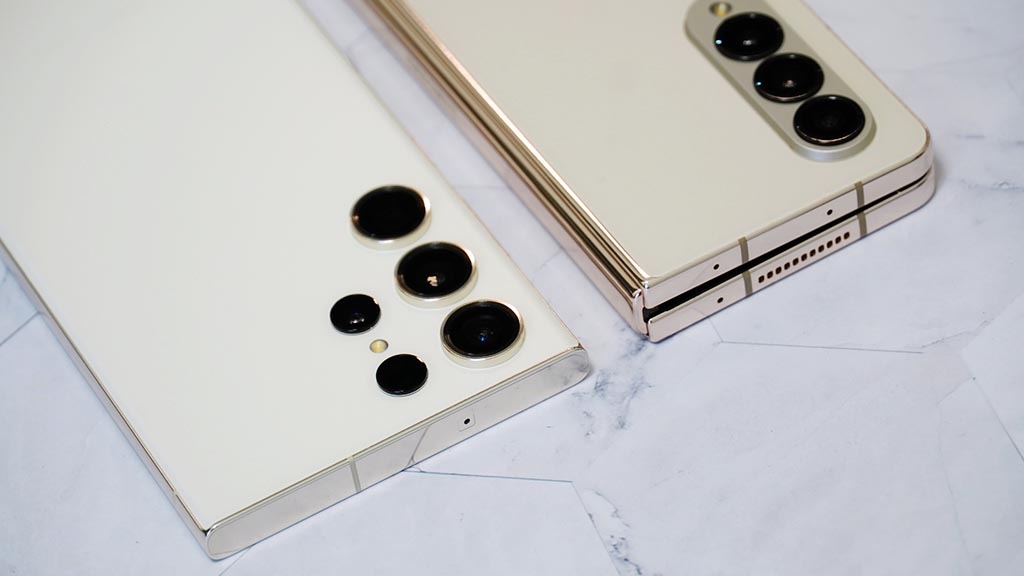
Samsung ranked first in market share in the global smartphone market in Q3, 2023. TrendForce report says that Samsung led the global Q3 smartphone market, recording a market share of 19.5%.
Overall production in the third quarter increased by 11.5% compared to the previous quarter to 60.1 million units. During the same period, Apple’s production increased by 17.9% to 49.5 million, thanks to iPhone 15.
Follow our socials → Google News | Telegram | X/Twitter | Facebook | WhatsApp
Third place was taken by Xiaomi (13.9%), followed by Oppo (12.6%) and Transion (8.6%). 6th place is Vivo (8%). Meanwhile, global smartphone production reached 308 million units, a 13% increase compared to the previous quarter and a 6.4% increase from the previous year.
Huawei’s re-entry into the flagship smartphone market targeting Apple has had a significant impact in China. Huawei is aiming to expand its high-end flagship series, focusing on the Chinese domestic market next year, so Apple “We plan to attack directly”.
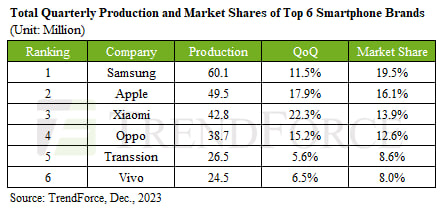
// Source
Business
Underdog phone brand jumped 50%, Samsung and Apple lost ground
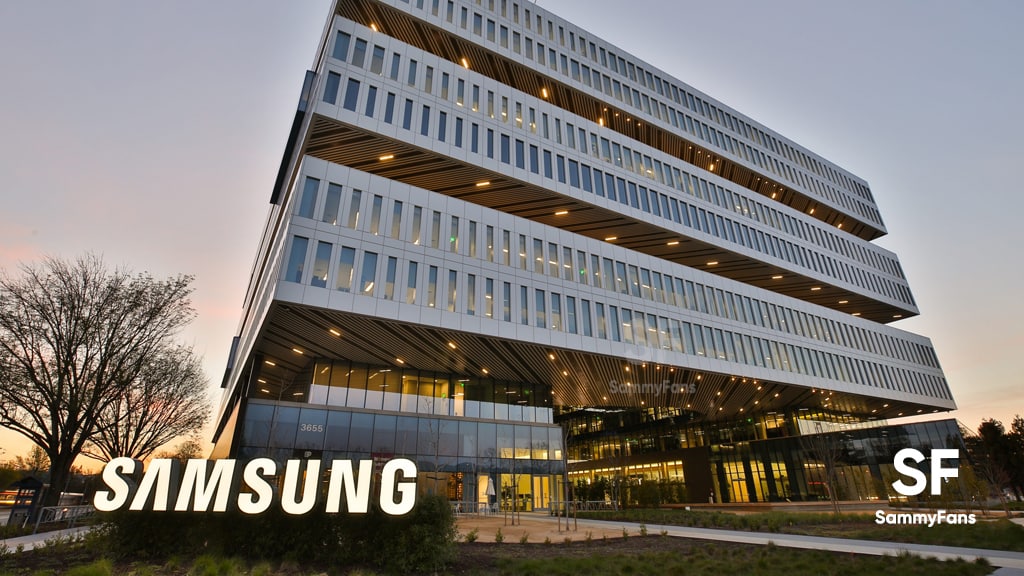
In Q3 2023, Samsung and Apple’s market share slightly declined, while an underdog Chinese phone brand appeared on the top 5 chart. In a recent development, Canalys published market research data for the third quarter, revealing Tanssion as the fifth best-seller globally.
According to the info, Samsung and Apple lead total sales with 20% and 17% market share, yet both have fallen from their 22% and 18% levels in 2022. However, Tanssion, the maker of Tecno, Itel, and Infinix phones, climbed from 6% global market share last year to 9% in 2023, a 50% jump.
Follow our socials → Google News | Telegram | X/Twitter | Facebook | WhatsApp
Apart from this, Xiaomi matched last year’s share only by “recovering” from a terrible first half of 2023. At the same time, OPPO has fallen steadily over the past two years, while fellow BBK brand vivo lost the top-5 slot it’s owned for years.
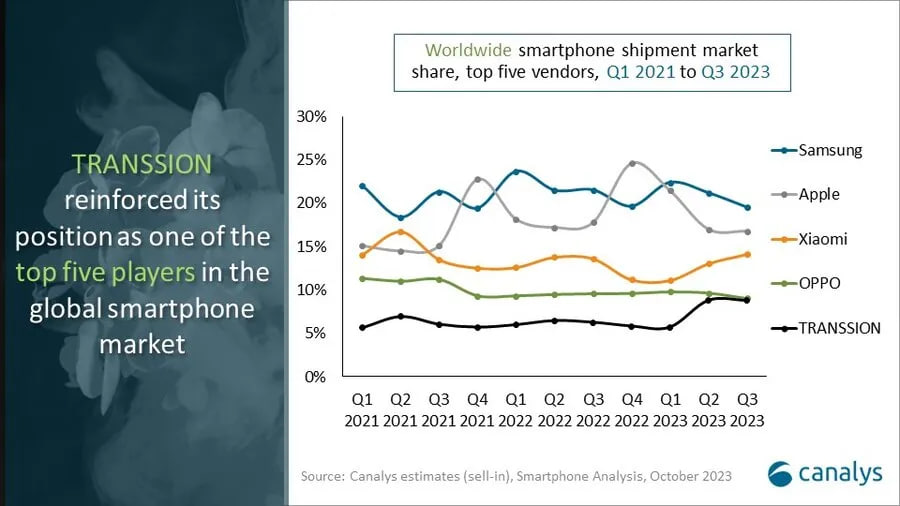
Overall, the global smartphone market underwent a slight drop of 1% in Q3 2023. Bolstered by regional recoveries and new product upgrade demand, the smartphone market recorded a double-digit sequential growth in Q3, ahead of the sales seasons.
Business
Samsung enjoyed 2023’s last victory over Apple?

Recently, research agency Counterpoint Research published their latest analysis. The report reveals that Samsung continued its leadership in the third quarter of 2023, while Apple remained in the second spot. However, both OEMs faced a decline of 1 percent year over year.
According to CR, slower consumer demand is the main factor in the dwindling sales. The market did see a slight 2 percent growth in Q3 compared to Q2, likely driven by last month’s iPhone 15 series launch. Samsung secured 20 percent market share, while Apple grabbed 16 percent sales.
Follow our socials → Google News | Telegram | X/Twitter | Facebook | WhatsApp
The Galaxy A-series was the key driver for the South Korean smartphone maker. Apple came in second with 16 percent of the market while Xiaomi rounded out the top three with its 12 percent share. Oppo (10 percent) and vivo (8 percent) were the remaining brands in the top five charts.

The newly released iPhone 15 series will help Apple score a lead over Samsung in the fourth quarter of the year. The results will arrive by early next year, and it’s expected that the US phone maker could surpass Samsung. Major camera upgrades and USB-C helped Apple register strong sales.










